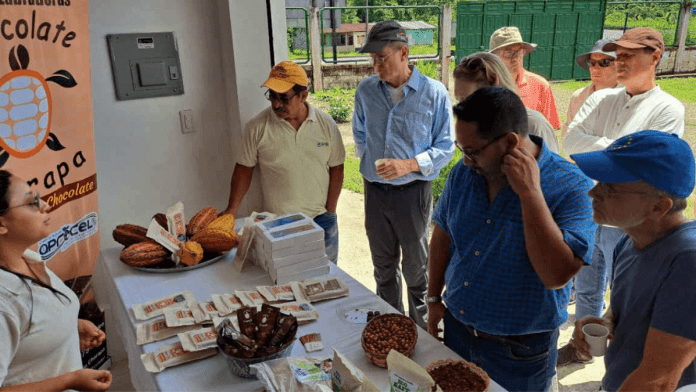News in Brief:
– Ecuadorian exporters race against December 2024 deadline to meet deforestation-free standards affecting cocoa, coffee, and palm oil exports.
– German organisations are support Ecuadorian compliance through programs and funding, aiding small producers and sustainable practices.
The European Union’s (EU) stringent standards for agricultural exports like cocoa, coffee, and palm oil are a significant development with far-reaching implications for producers worldwide.
Known as Regulation 1115, the rule mandates that products imported into the EU must not originate from deforested areas and must uphold labour and indigenous rights. This means that exporters, must now prove that their products meet these environmental and social criteria. Failure to comply may result in losing access to the bloc’s market, a crucial export destination.
In reaction to the policy, German organisations have issued advisories to Ecuadorian exporters, emphasising compliance with these new standards by December 2024. Micro and small companies have an extended deadline until June 2025. Failure to comply will significantly impact Ecuador’s lucrative exports of cocoa, coffee, and palm derivatives, valued at $350 million.
Implications of EU regulations for African farmers
African farmers, particularly those exporting commodities like cocoa and coffee, should take note. EU regulations and standards from other markets could affect their exports. It’s essential for farmers across the continent to start preparing for potential changes in market requirements.
For small-scale farmers in Africa, meeting these standards may pose challenges due to limited resources and infrastructure. However, initiatives like the German SAFE program, which helps Ecuadorian cocoa producers obtain certification, offer a model for sustainable agriculture that African farmers can learn from. By investing in sustainable practices and certification processes, African farmers can enhance their competitiveness in global markets.
The collaboration between German organisations and Ecuadorian exporters highlights the importance of international cooperation in promoting sustainable agriculture. African countries can benefit from similar partnerships to strengthen agricultural value chains and meet evolving market demands.



